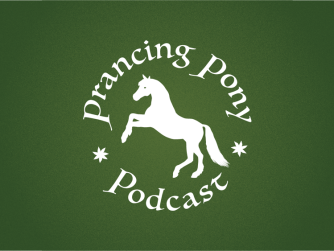Too soon? Probably so, because Frodo’s just learned that Boromir is dead — oh, and the guy interrogating him is the brother of the deceased. He questions Faramir’s vision of the funeral boat, but Faramir has no doubt of what he’s seen… fortunately, over the course of their conversation, he manages to dispel all doubts about Frodo’s honesty as well. We revisit the Perilous Realm, learn which of Denethor’s sons actually paid attention in school, and cover the history of the Stewards of Gondor. Also, some killer word-nerdery on the word bane.
Recommended Reading:
Tolkien, J. R. R. The Two Towers: Being the Second Part of The Lord of the Rings (Mariner Books, paperback) “The Window on the West”, pp. 651-55
Tolkien, J. R. R. (Christopher Tolkien, ed.) The Silmarillion (Mariner Books, paperback)
Tolkien, J. R. R. Tales from the Perilous Realm (Houghton Mifflin Harcourt, hardcover)
Carpenter, Humphrey, ed. The Letters of J.R.R. Tolkien (Mariner Books, paperback)
Williams, Hamish, Tolkien and the Classical World (Walking Tree, Paperback)



Thanks for another great episode!
On Boromir and Faramir — CS Lewis was very close to his brother Warnie. Warnie was the older, not a Boromir type but he was a professional soldier and didn’t marry. Their mother Flora sadly also died young. Their father was very strict, which may have helped forge the bond between them. They lived together and were both Inklings.
On classics at Oxford — it most certainly was a job-opener. My parents were both on the same Greats course that Tolkien started on. My mother used to say it was set up by Gladstone to train the administrators of the British Empire (which I assure you she never became). My father got a job translating scientific papers from Italian, a language he had never studied (or science for that matter), on the basis he knew Latin.
Classical influences — in 1942 C.S. Lewis published ‘A Preface to Paradise Lost’, which sets Milton against Homer and the Aeneid. He quotes Aeneas comforting his men:
“One day it will be pastime to recall this woe”
–Aeneid I, 206
Isn’t that a lot like Faramir:
“If ever … we re-tell our tales, sitting by a wall in the sun, laughing at old grief”
–‘The Forbidden Pool’
There’s an echo of Lewis Carroll as well. “Laughing and Grief” is what the Mock Turtle calls Latin and Greek. Truly a well-stocked mind.
Enjoyed your discussion of Lothlorien and Faerie. I’m reminded of Frodo’s perceptions walking blindfolded into Lothlorien:
“As soon as he had set foot on the far bank of Silverlode a strange feeling had come upon him, and it deepened as he walked on into the Naith: it seemed to him that he had stepped over a bridge of time into a corner of the Elder Days, and was now walking in a world that was no more.”
He speaks of this feeling later on the trip down Anduin, in the interesting conversation with Sam, Gimli and Legolas about the varying perception of time:
“In that land, maybe, we were in a time that has elsewhere long gone by. It was not, I think, until Silverlode bore us back to Anduin that we returned to the time that flows through mortal lands to the Great Sea…Rich are the hours, though short they seem, in Caras Galadhon, where Galadriel wields the Elven-ring.”
This of course is why the Three Rings were of no direct use in the war against Sauron–their power was of preservation, not force.
Also, you speculated on the potential rivalry between Aragorn and Boromir, if fate had allowed them to reach Minas Tirith together and become rivals in war. Aragorn had already achieved distinction in Gondor’s wars in a previous generation under an assumed name (Thorongil) and had retired to avoid a potential rivalry with the young Denethor. At that time Aragorn was not ready to advance his claim to the throne, but this time around it would have been a different story. What would their relationship have been? An interesting question…
Have really been enjoying your discussions–looking forward to more.